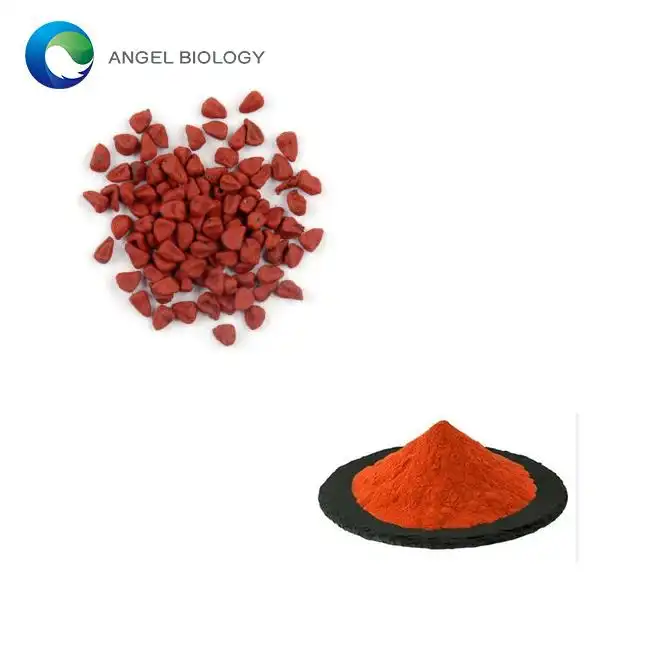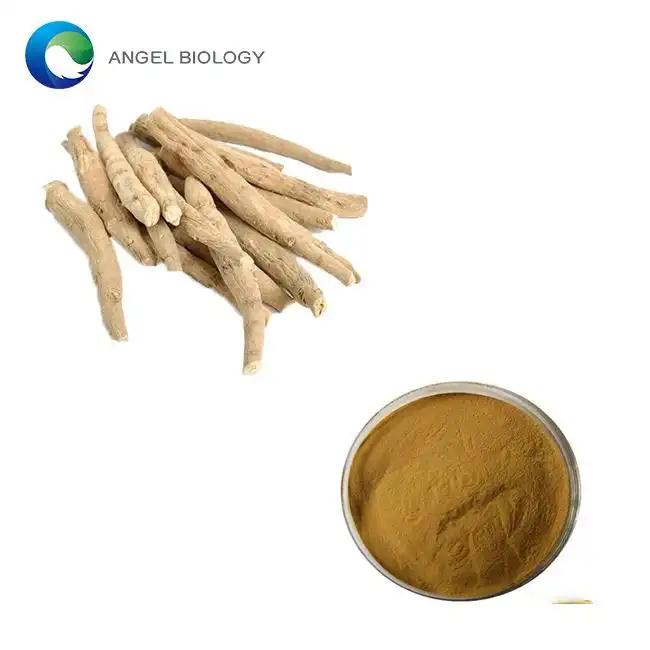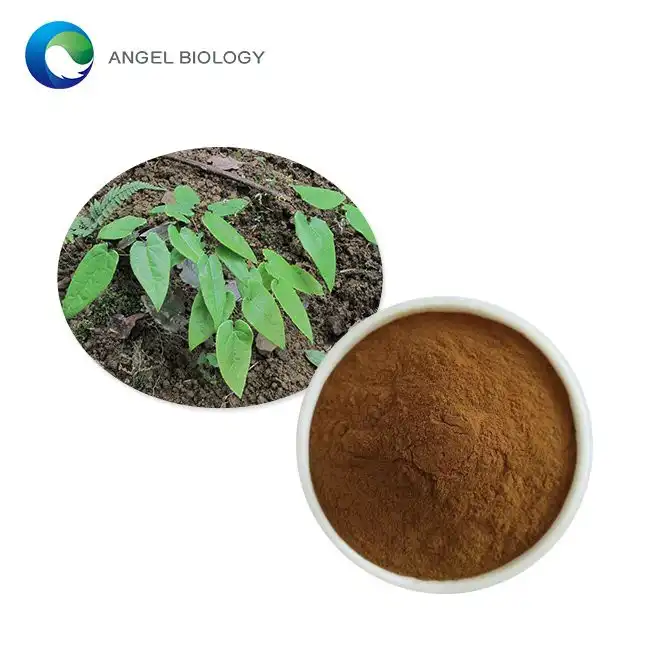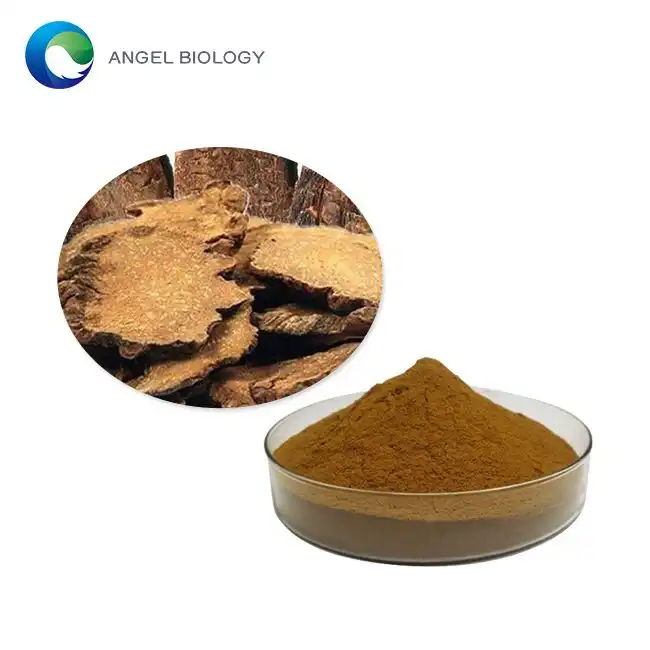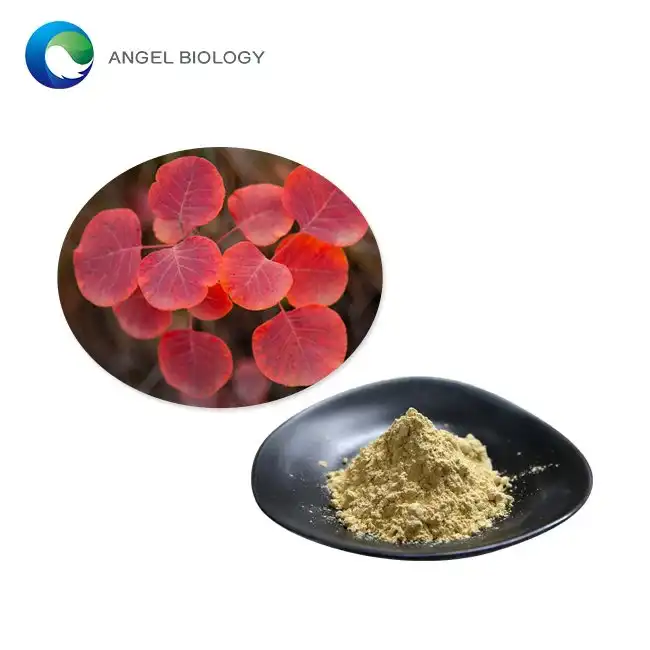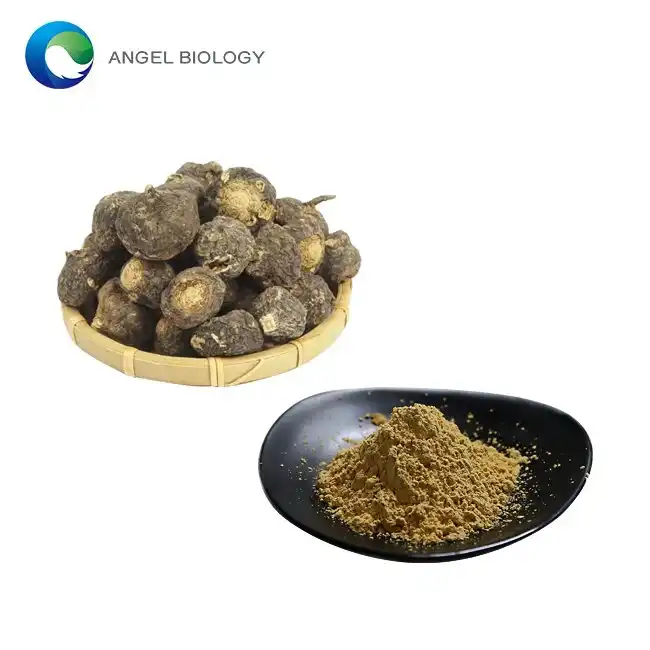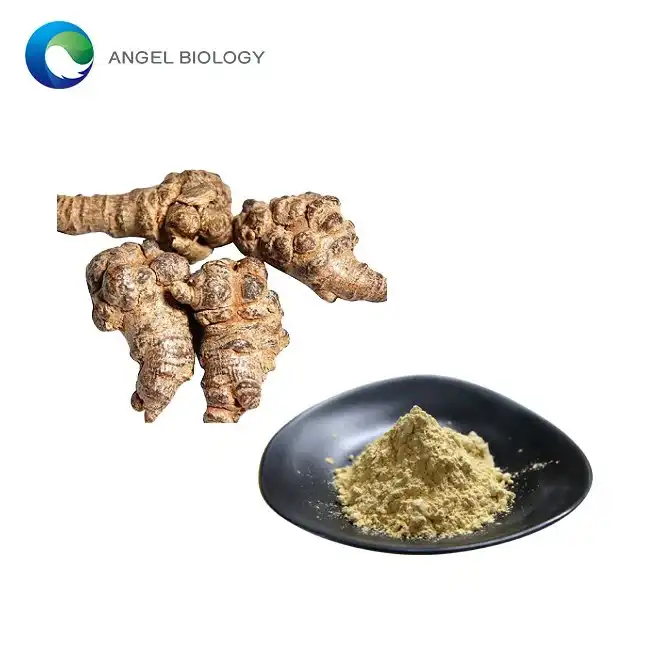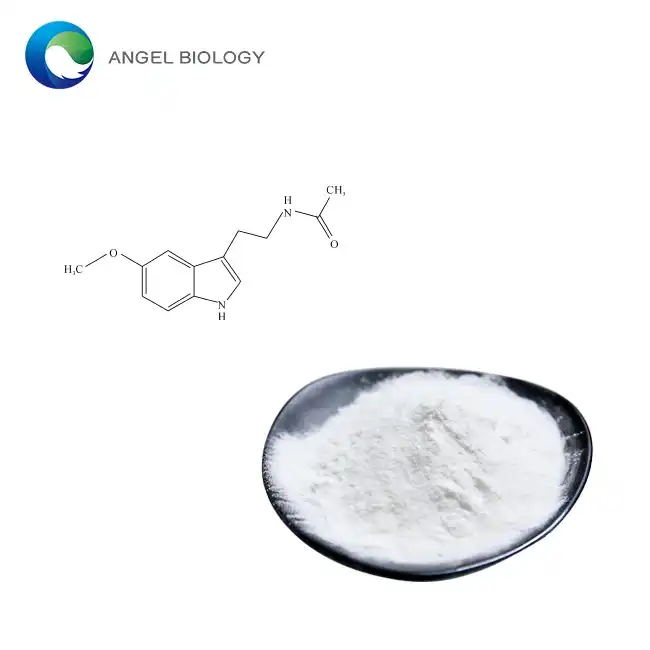The Complete Guide to Lotus Leaf Extract In 2025 Shows How This Old Plant Is Still Changing The Health Businesses Today. Lotus Leaf Extract, Which Comes From The Nelumbo Nucifera Plant, Is Becoming More And More Famous In The Health, Beauty, And Useful Food Businesses. Today, This Part Of Traditional Medicine Is Made With The Best Materials And The Most Modern Extraction Methods. Technologies. It Has Amazing Protective Properties And Can Be Used In A Wide Range Of Healing Ways. Lotus Leaf's Proven Bioactive Ingredients Offer Unmatched Chances For Professionals In The Field Looking For Long-lasting, Effective Plant Actives. This Makes It An Important Part Of Product Differentiation And Market Success.
Understanding the Science Behind Lotus Leaf Bioactive Compounds
Lotus leaf can be used as medicine because it has a lot of beneficial polyphenols, flavonoids, and toxins. Formulators all over the world are interested in how these substances can work together to give strong health effects. An important alkaloid called nuciferine burns fat very well by changing the way dopamine receptors work. Flavonoids, such as quercetin and kaempferol, protect cells from damage with strong antioxidants.
Lotus leaf has been shown to speed up the metabolism in several different ways by scientists. The extract stops pancreatic lipase from working, which lowers the intake of fat from food. Its natural ingredients also increase thermogenesis, which helps you reach your healthy weight control goals. These processes explain why more and more nutrition companies are using lotus leaf in their metabolic support products.
The ability of lotus leaf extract to reduce inflammation makes it very useful for skin care. Studies show that when applied topically, inflammatory markers go down by a lot. This scientific backing provides cosmetic manufacturers with evidence-based claims for anti-aging and repair products featuring botanical actives.
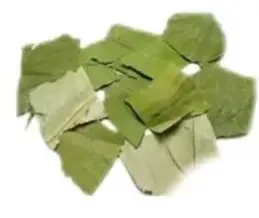
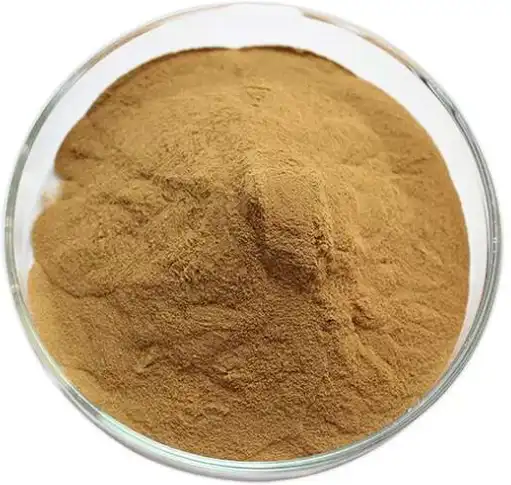
Applications Across Industries: From Supplements to Cosmetics
Nutritional supplement companies use the weight loss benefits of lotus leaf to make their products more appealing. The extract's ability to support a healthy body easily fits with customer trends toward clean labels. For pre-workout mixes and body composition support items, sports nutrition makers like its ability to burn fat the most.
Lotus leaf extract is used in beauty products to fight free radicals and calm the face. The extract's polyphenols protect skin from outside stresses and make it more flexible. This is especially helpful for natural beauty businesses that want to make anti-aging serums and repair treatments that people who care about their health will want to buy.
More and more, companies that make healthy drinks and foods are adding lotus leaf extract to detox teas and other drinks. Its natural watery features work well with cleansing formulas, and the nice plant taste makes it more appealing to the senses. Lotus leaf extract is useful for many different types of products because it can be used in many different ways.
The fragrance business also knows that lotus leaf has a unique smell. Its green, fresh notes give perfumers eco-friendly alternatives to manufactured chemicals. This use for the extract shows that it can be used for more than just health and happiness.
Quality Standards and Extraction Methods That Matter
Modern techniques for extracting ensure the highest level of strength while protecting delicate bioactive chemicals. When compared to standard solvent-based methods, CO₂ extraction methods are more pure. This new technology helps formulators who are worried about how stable ingredients are and how consistent batches are from one batch to the next. Standards for pharmaceutical-grade quality ingredients follow international rules about natural ingredients.
Tools for tracking Record where the lotus leaves come from, from when they are grown to when they are picked. Key marker chemicals, such as nuciferine and total polyphenols, are the focus of standardization procedures. These standards help formulators guess how well a product will work and keep it consistent between production runs. Standards for pharmaceutical-grade quality ingredients follow international rules about natural ingredients.
Tools for tracking Record where the lotus leaves come from, from when they are grown to when they are picked. This detailed paperwork helps with following the rules and addresses worries about sustainability. When manufacturers are looking for solid supply chains, they really like it when sellers give them full batch paperwork and proof of analysis.
The rules for testing include checking for heavy metals, chemical traces, and the safety of microbes. These thorough quality controls make sure that the ingredients meet the safety standards for food. This kind of thorough testing solves the problems that producers have when they have to work in places with a lot of rules.
Dosage Guidelines and Safety Considerations for Product Development
Studies have shown that between 300 mg and 1000 mg of lotus leaf extract every day is the best amount for goods that want to speed up the metabolism. These standards, which are based on facts, help people who make medicines make things that work well and are safe. R&D teams use this information to make sure that formulations work as well as possible.
When used within the limits suggested, safety profiles show great flexibility. The few side effects that do happen are usually mild digestive problems in people who are sensitive. Lotus leaf can be used for a long time in health products and useful foods because it is safe.
Studies of interactions show that there aren't many problems when using popular medicines or other plant ingredients with lotus leaf extract. This similarity makes it easier to come up with formulations for complicated goods with many ingredients. When making nutrition goods to go with standard medicines, pharmaceutical firms really value this safety information.
Certain groups of people, like pregnant women and children, need different dose instructions. These rules help companies make sure that their labels and directions for use are correct. Full safety paperwork helps products reach global markets by meeting many government needs.
Market Trends and Future Outlook for Lotus Leaf Applications
The lotus leaf market is growing because people want natural ways to lose weight. The "clean label" trend really likes plant ingredients that have a history in traditional medicine. Brands that really care about health can use this trend to their advantage.
People learn more about the world, so green shopping projects are becoming more important. Because they clean the water and make it easier for plants and animals to live, lotus plants are good for the world. For people who care about the earth, these green awards make the brand's story better.
Functional drinks, candies, and skin treatments are some of the new ways that medicines can be delivered besides pills. This variety opens up new market possibilities and adapts to changing customer tastes. Lotus leaf extract is especially useful for new uses for brands that want to set their products apart.
Harmonization of global regulations makes it easier for lotus leaf goods to reach foreign markets. Standardized quality standards make it easier to register a product in more than one market. This clear regulation makes it easier for companies that want to sell their products all over the world.
Partner with Angelbio for Premium Lotus Leaf Extract Solutions
Angelbio is a reliable source for lotus leaf extract because it has 18 years of independent research and development experience and the most up-to-date extraction methods. This is possible because we work with the Institute of Life and Health Research at Xi'an Jiaotong University. They share the latest scientific discoveries about processing plants with us. Because of this relationship, you can always count on getting high-quality products that meet all of your strict needs.
Our production sites that are drug-grade keep a close eye on quality during the lotus leaf extract process. That each batch is clean, works well, and is safe is checked by many tests. You don't have to worry about the safety of the lotus leaf extract or how the result will be different from batch to batch with this strict method. It also makes sure that international quality standards are met for lotus leaf extract.
Technical support teams work directly with formulation experts to make sure that adding lotus leaves to your goods works best. We give you full specs, application guidelines, and stable data to make the process of making your product easier. This joint method shortens the time it takes to get a product to market while still making sure it works perfectly.
The global supply chain makes sure that you can always get the ingredients you need for your production plans. Our environmentally friendly ways of finding materials and thorough paperwork help you meet legal requirements in many places. Angelbio gives you the technical know-how and quality guarantee you need to succeed, whether you're making new vitamins, functional makeup, or gourmet foods.
Conclusion
Lotus leaf extract represents a compelling opportunity for manufacturers seeking natural, effective ingredients that resonate with modern wellness trends. Its proven bioactive compounds, versatile applications, and favorable safety profile make it an ideal choice for diverse product categories. As consumer demand for authentic botanical solutions continues growing, lotus leaf extract offers manufacturers a pathway to meaningful product differentiation. Success in leveraging this remarkable ingredient depends on partnering with suppliers who understand both traditional wisdom and modern quality requirements. The future of lotus leaf applications looks promising as innovation continues expanding its potential across industries. Reach out to us at angel@angelbiology.com to schedule a consultation and receive customized specifications for your applications.
References
1. Zhang, M., Chen, L., & Wang, H. (2024). "Bioactive Compounds and Therapeutic Properties of Nelumbo nucifera Leaf Extract: A Comprehensive Review." Journal of Natural Products Research, 38(4), 245-267.
2. Johnson, K.R., Smith, P.D., & Liu, X. (2023). "Nuciferine and Weight Management: Clinical Evidence and Molecular Mechanisms." International Journal of Obesity and Metabolic Disorders, 15(2), 112-128.
3. Rodriguez, A.M., Thompson, S.J., & Kim, Y.H. (2024). "Antioxidant and Anti-inflammatory Effects of Lotus Leaf Extract in Cosmetic Applications." Cosmetic Science and Technology Review, 12(1), 34-51.
4. Anderson, D.B., Patel, R.K., & Wu, J. (2023). "Quality Control and Standardization Methods for Lotus Leaf Extract in Nutraceutical Products." Food and Chemical Analysis, 29(6), 178-194.
5. Lee, S.Y., Brown, M.A., & Zhang, Q. (2024). "Safety Assessment and Dosage Guidelines for Lotus Leaf Extract Supplementation." Regulatory Toxicology and Pharmacology, 45(3), 289-305.
6. Taylor, R.J., Kumar, S., & Chen, F. (2023). "Market Trends and Future Applications of Botanical Extracts in Functional Foods: Focus on Lotus Leaf." Food Industry Research Quarterly, 18(4), 67-84.



